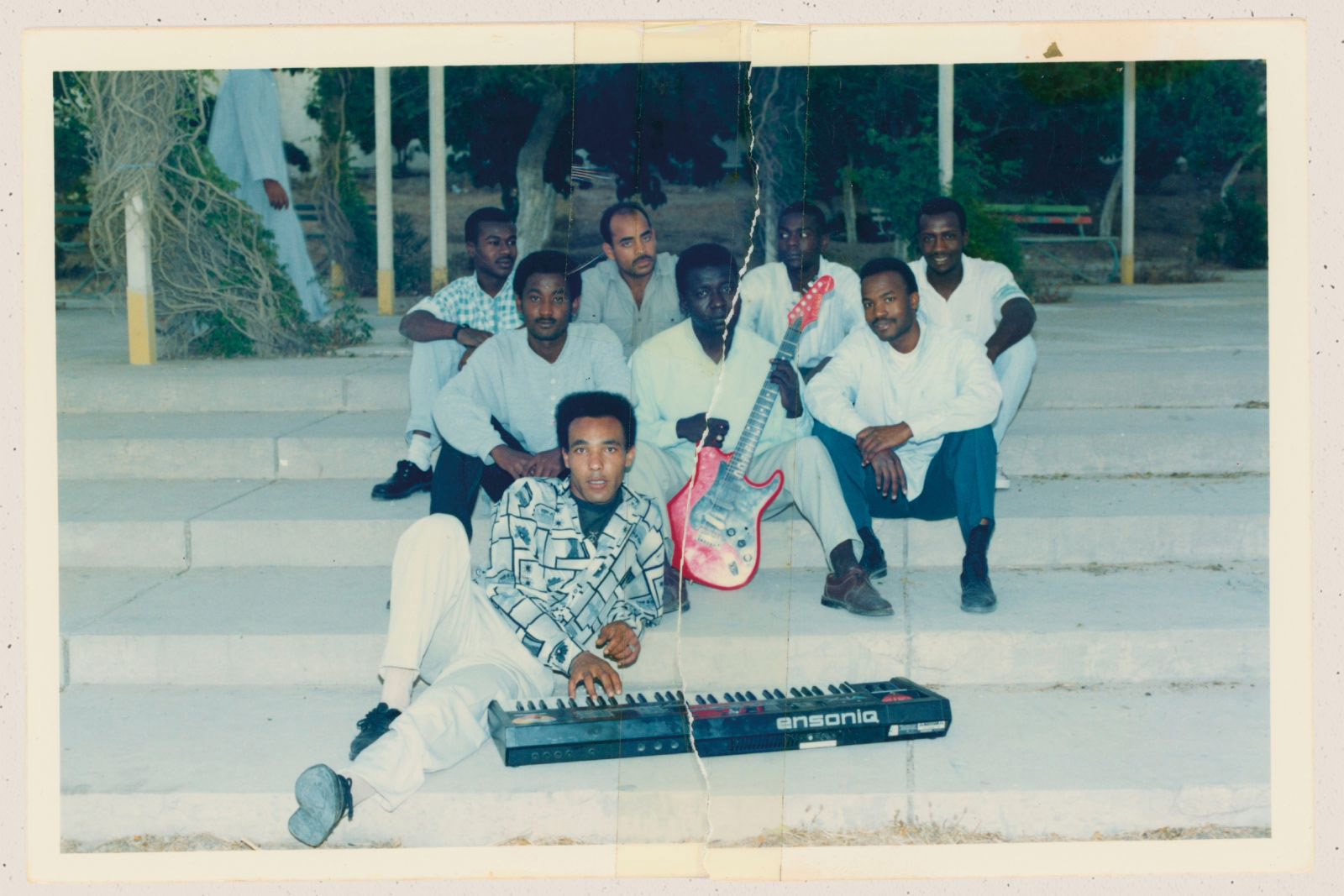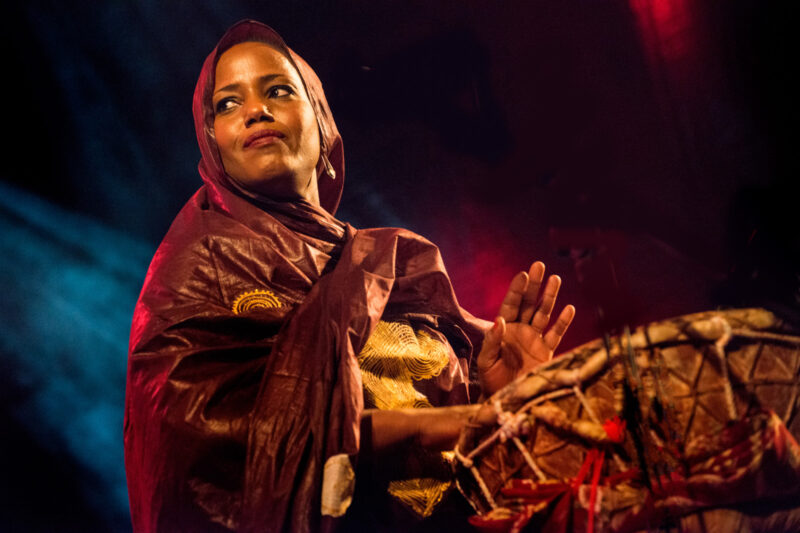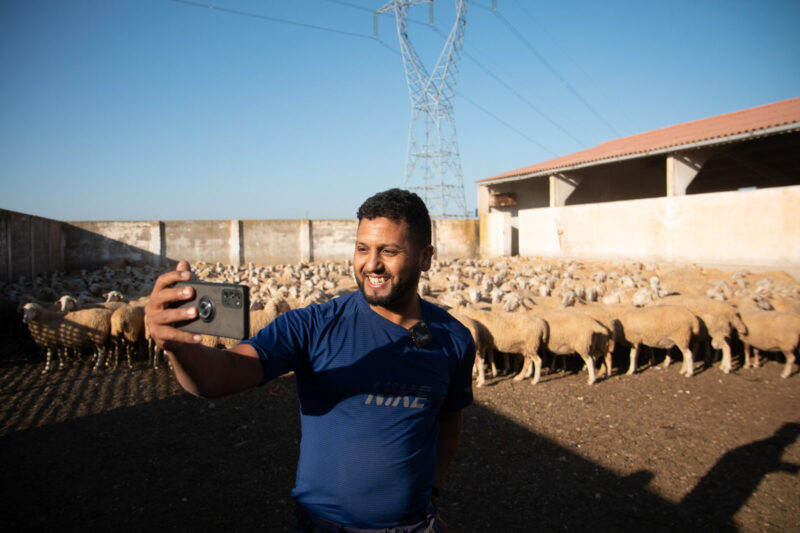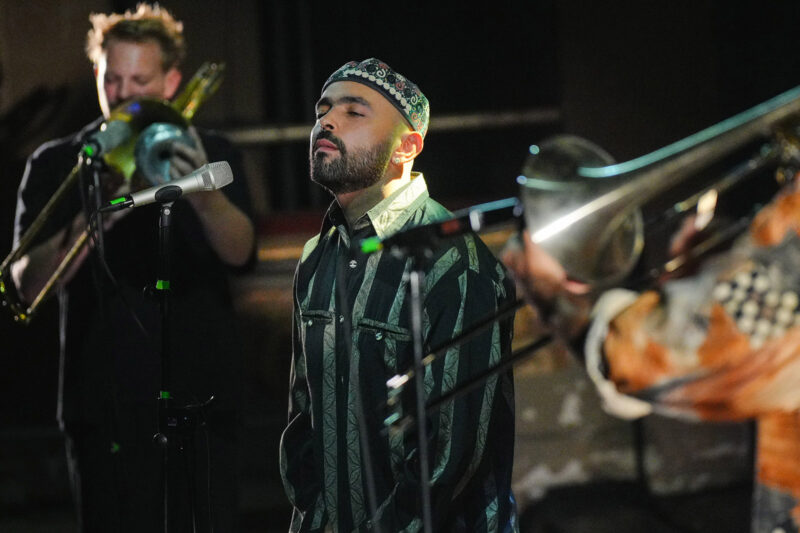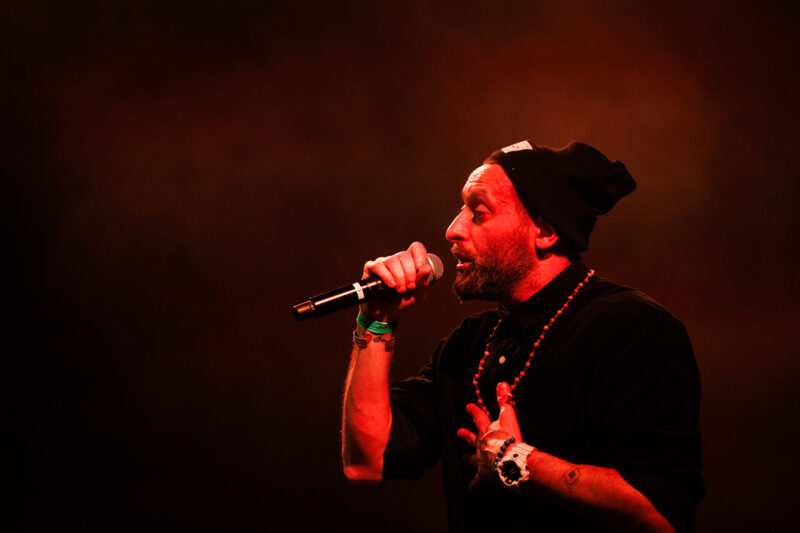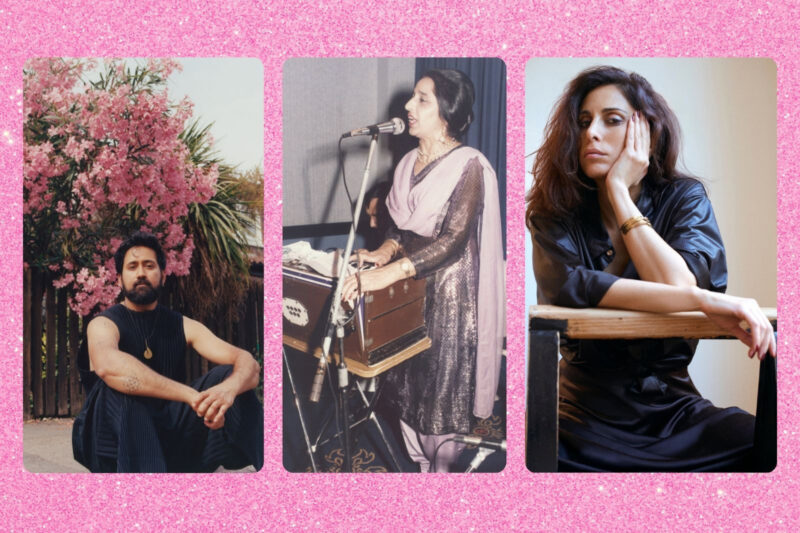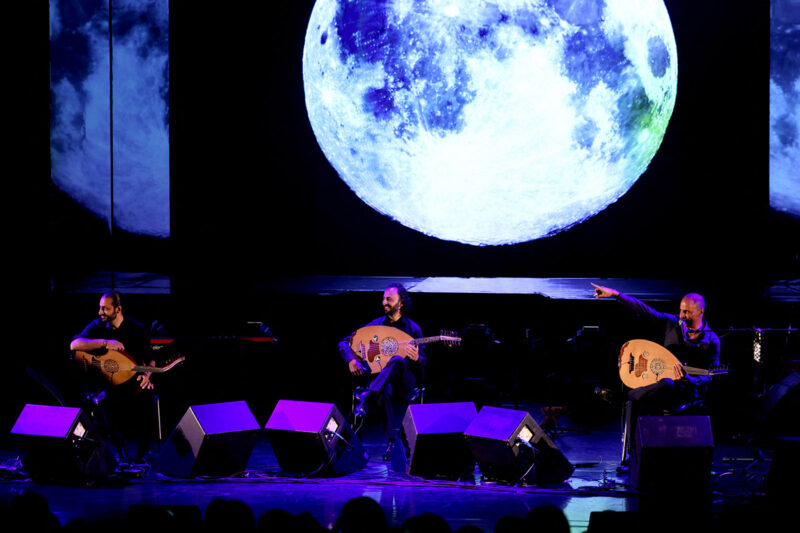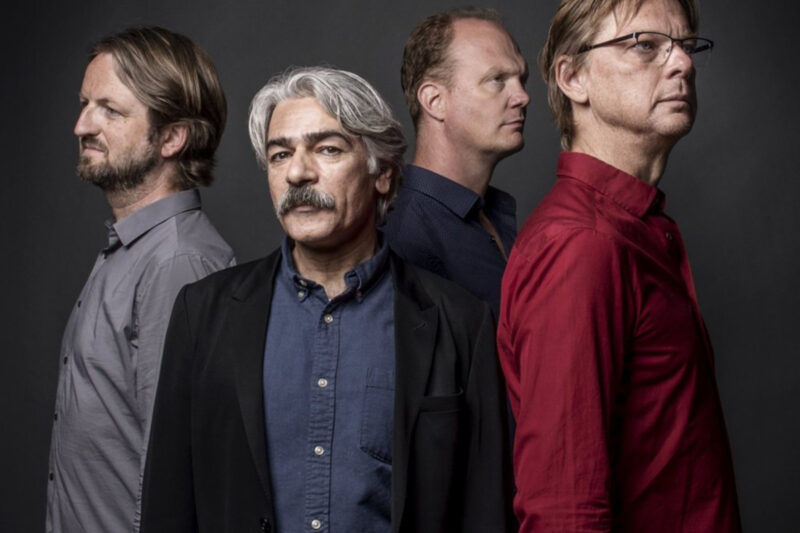Guedra Guedra gives a masterclass in ever-evolving rhythm
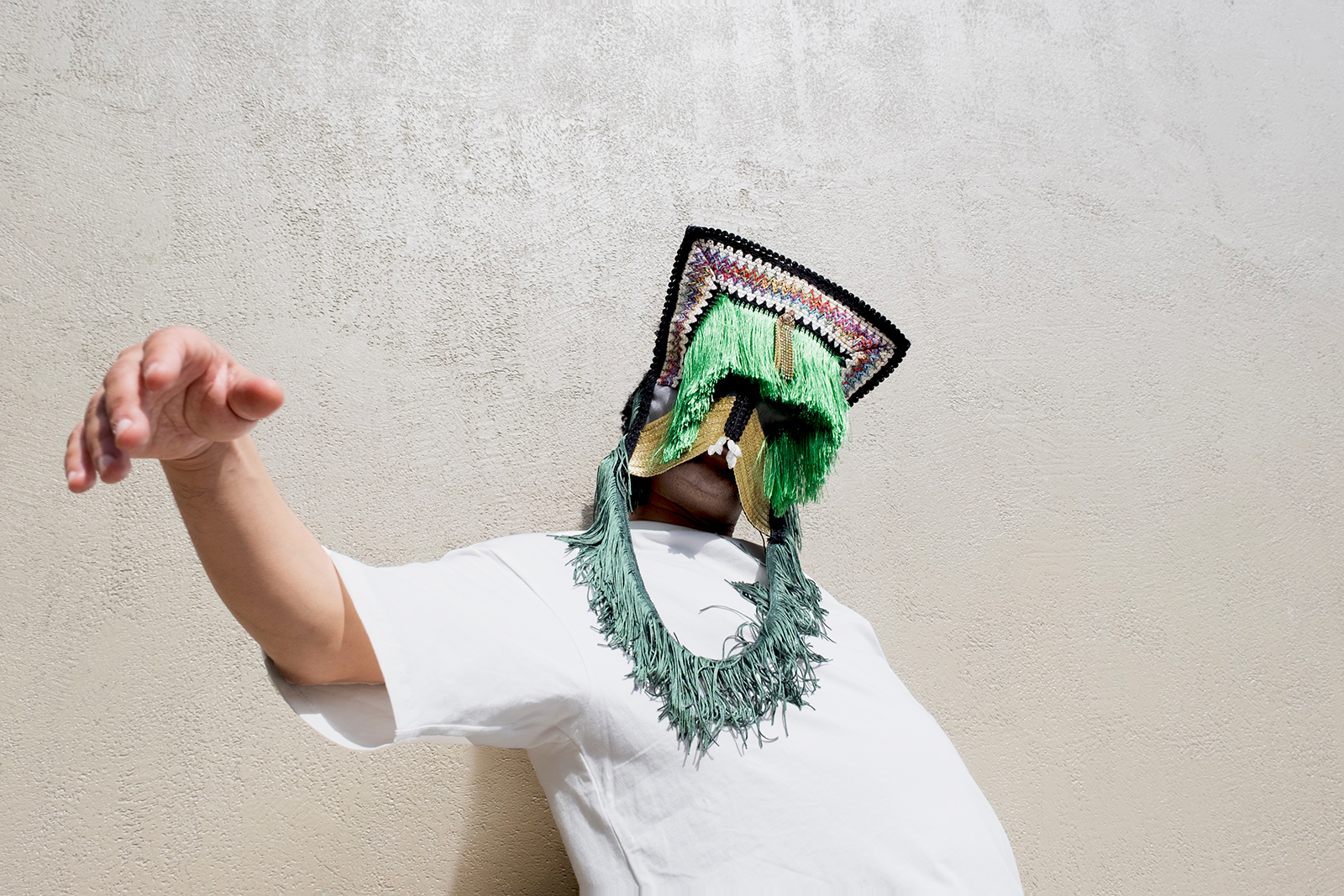
The Moroccan producer’s work travels the length and breadth of Africa in search of the perfect beat
“My grandmother always used to say, ‘New things are good but don’t let go of the old ones.’ That’s something that’s forever stayed with me,” says Abdellah Hassak. “In my music, I’m trying to create a dialogue between cultural tradition and the contemporary. It’s a living, changing thing, both old and new.”
The Marrakech-based producer, who records and performs under the names Dubosmium and Guedra Guedra, has been remixing the traditional sounds of Morocco and the wider African continent for the dancefloor since the release of his debut EP, Son of Sun, in 2020. Self-taught and driven by instinct, Hassak’s music plays like a barrage of collagist references, reinterpreting everything from Guinean djembe rhythms to Bedouin beats, Moroccan gnawa and darbuka percussion, all combined with melodic synths and rumbling techno bass. It’s a polyrhythmic frenzy designed for club systems and nocturnal dancing.
More than just a conduit to get audiences moving, he sees his process as a political act. “I try to reconstruct and recompose something new from these traditions and inspirations,” Hassak says. “By making everything electronic, I’m recontextualising these sounds that might have otherwise been seen as marginal or ‘exotic’. In their new form, I’m creating a bridge between past, present and future and resisting the western homogenisation of genres, where everything has the same 4/4 beat. This music is its own genre and musical language.”
On his new second album, titled Mutant, Hassak harnesses his style as a metaphor not only for cultural evolutions but also for migration. “The record and title is a way of thinking about cultural identity in a way that’s always fluid and never fixed,” he says. “It’s a representation of this world in motion and a reflection of how Marrakech is a place where so many different people from all over the world pass through, each with their own diverse sounds. It’s also an artistic stance — staying open to new mutations and never making the same thing I’ve done before.”
The result is a 13-track masterclass in ever-evolving rhythm and groove. Tracks such as Drift of Drummer use djembe as a foundation for pulsating trance arpeggios and the thud of overlaid kick drums, while Paradigm plays like a wafting piano house track intercut with traditional Maasai tribal chants. Ring of Fire, meanwhile, channels the fast-paced rhythms of Chicago footwork alongside field recordings of dances performed by the Tanzanian Makonde people, and Tamayyurt teams the melismatic Amazigh vocals of singer Foulane Bouhssine with a pulsating bass line and keening phrases played on the stringed rebab.
“The entire writing process for this record was intuitive and based on what my body felt as I was creating sounds,” Hassak says. “I’d play a reference rhythm or melody for a few moments, see if it made me move and then carry on. All the while, I kept the windows of my studio open to the street sounds and chaos of Marrakech, letting it all bleed together.”
When he was growing up in Casablanca, Hassak’s parents would play cassettes filled with music popular in Morocco, from chaabi to classical Andalusian songs, inspiring him to take up the drums, then bass guitar and play in high school bands. It wasn’t until Hassak enrolled at engineering college, though, that he taught himself how to produce music.
“I didn’t have time to play with bands so I thought maybe I could make music by myself at home,” he says. “I started playing around with software on my laptop and soon became very open to making beats and tracks in lots of different styles. That’s how my first solo project, Dubosmium, eventually came to life.”
Releasing his first Dubosmium album, Green Element, in 2008, Hassak experimented with the dilatory bass of dub music and processed field recordings to create a dreamlike soundscape of eerie, laid back rhythmic textures.
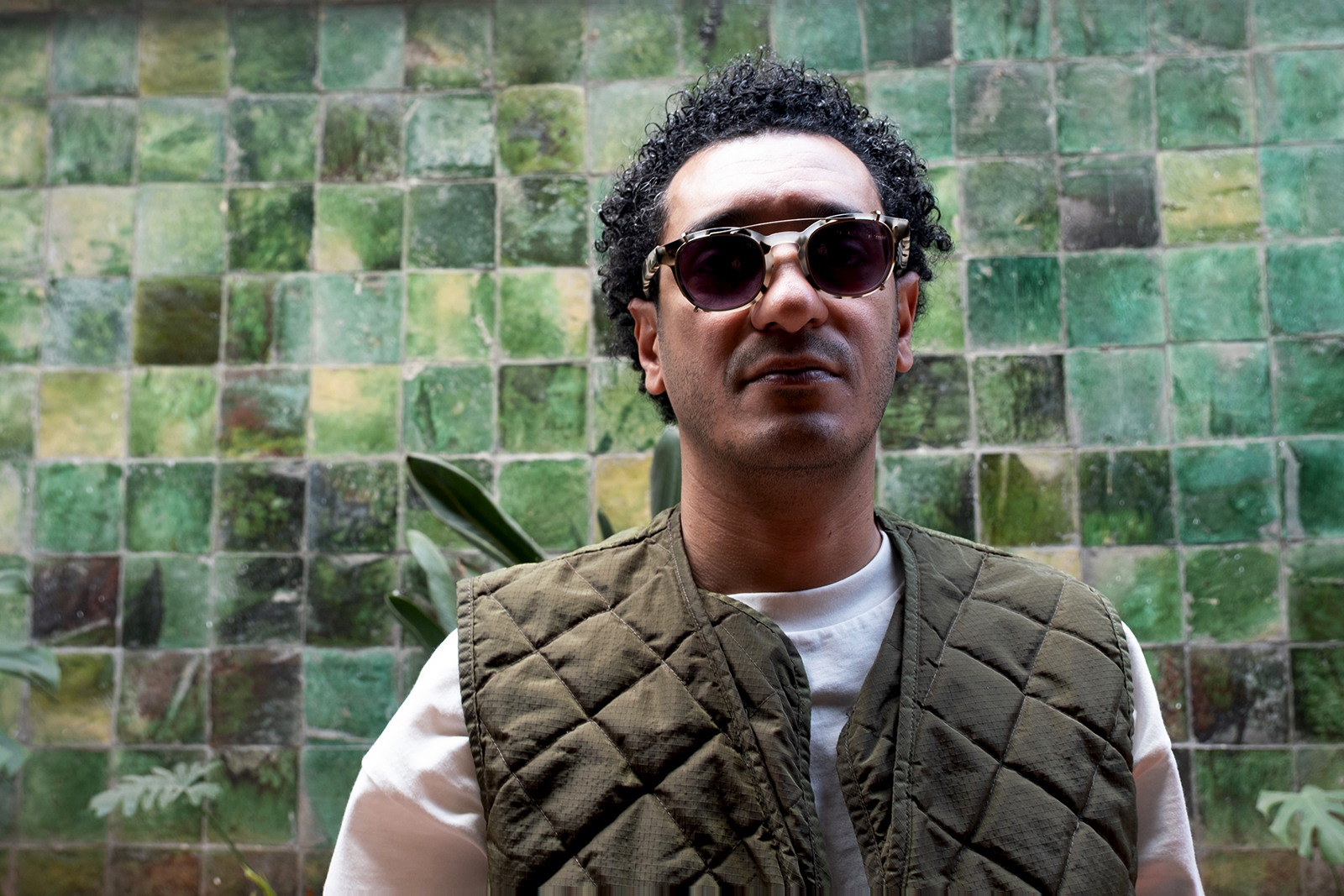
“That project was the first time I became interested in field recordings and collecting sounds from Morocco, Egypt and Mauritania to build a kind of sonic archive,” Hassak says. “I made friends all across Africa who still to this day send me sounds to use in my music, so when I decided to start making music that was more embodied and rhythmic as Guedra Guedra, it was natural to keep including these recordings of cultures from around the continent. It’s become a way to think about our collective memory and a way to create shared musical knowledge.”
Vexillilogy, his 2020 debut album as Guedra Guedra, includes everything from the chants of the Zayane mountain community to Rwandan tribal dance rhythms. For Mutant, he journeyed through east and west Africa to gain new inspiration, ultimately becoming drawn to percussion performances in Kouroussa, a town in north-eastern Guinea, and the Tanzanian traditional dances of the Makonde people, both of which feature on album tracks Drift of Drummer and Ring of Fire.
“I love travelling to discover the varied identities of this music and hearing what my friends send me, but at home in Marrakech we also have so many different cultures, from gnawa to Amazigh traditions, as well as the synths and vocoders in our commercial music,” he says. “There are so many sounds coming from everywhere. I’m immersed in this hybridity and it inspires me to keep establishing my own musical language.”
As well as continuing to create his own genre-spanning productions, Hassak is equally keen to bring new artists to Marrakech and keep expanding the music scene at home. He has spent the past year curating lineups at the city’s Kabana club, as well as working with the community-focused 4S association in Casablanca to help train young people in music production and management.
“We have a responsibility to bring something new to local audiences because otherwise all they have is commerciality or they don’t know what’s happening outside of their community,” he says. “It’s all part of the same mission — to inspire listeners to think differently and to feel connected to ancient sounds while experiencing something new.”
Mutant will be released on Smugglers Way on 29 August.
 Newsletter
Newsletter


